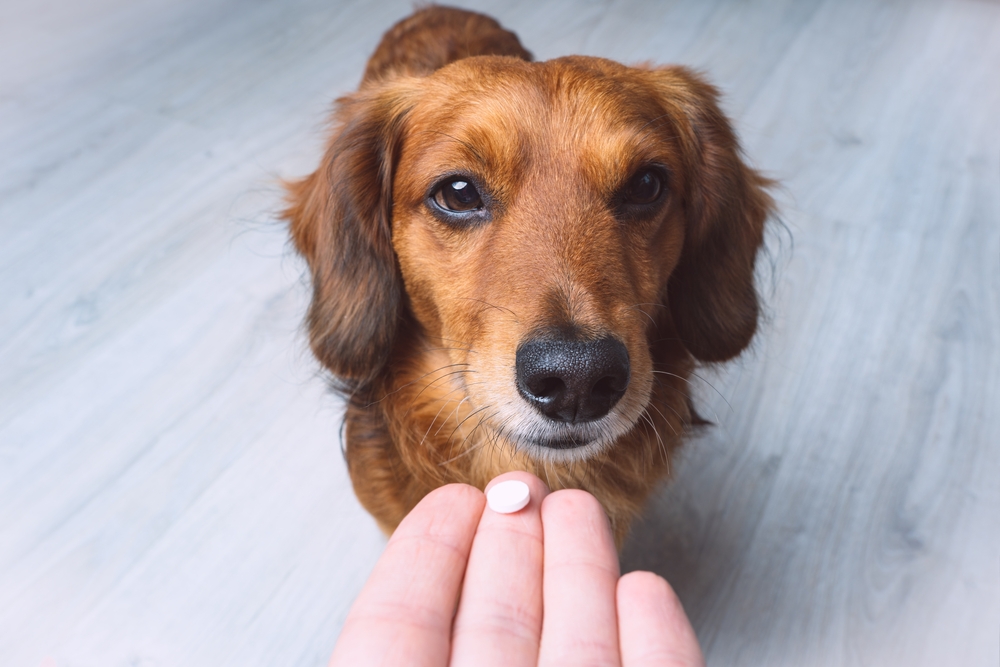Veterinary visits are necessary for your pet’s health and wellbeing, but the stress they can cause can be problematic. Our Oak Creek Veterinary Care team doesn’t want you to dread your pet’s veterinary appointments, so we provide tips to prepare your four-legged friend for a stress-free veterinary visit.
#1: Understand why a stressful veterinary visit is problematic
Many pets feel anxious during their veterinary exam. Stressful veterinary visits can cause problems for you, your pet, and our veterinary team including:
- Emotional trauma — A veterinary visit can upset some pets so much that they sustain emotional trauma that may manifest as issues such as decreased appetite, increased hiding, separation anxiety, or overgrooming.
- Skewed diagnostic results — Stress can increase your pet’s heart rate, respiratory rate, and blood pressure, and can also cause blood test result changes.
- Examination difficulty — If a stressed pet tries to hide or becomes aggressive during their veterinary visit, our team will have difficulty examining them appropriately.
- Negative association — When a pet has a stressful veterinary experience, they are likely to form a negative association, making future visits more difficult.
#2: Handle your pet at home
Acclimate your pet to being handled, including their feet, ears, mouth, belly, and tail. If your pet resists you touching a particular area, go slow and offer treats to help make the experience positive. During a veterinary examination, our team must touch your pet in many ways, and if they are used to this type of handling, your pet will be less anxious.
#3: Acclimate your pet to their carrier
For many pets, the only time they see their carrier is when they go to the veterinarian, and they may bolt when you take the conveyance out of the closet. Help your pet consider their carrier as a positive place so they won’t be afraid to enter when it’s time to go to the veterinarian. To help your pet learn to accept their carrier, follow these tips:
- Placing your pet’s carrier in plain sight — Place your pet’s carrier in an area where they like to rest and play so they can get accustomed to going in and out. They may even decide it’s a nice place to nap.
- Making your pet’s carrier cozy — Place a comfortable blanket and your pet’s favorite toy inside the carrier, so they realize that it is a safe space. You can also place your recently worn clothing inside to make them more cozy.
- Feeding your pet in their carrier — Place treats inside or feed your pet in their carrier to help them make a positive association.
- Using a pheromone spray — Use a pheromone spray, such as Feliway for cats or Adaptil for dogs, to make the carrier more inviting.
#4: Schedule your pet’s appointment early
If possible, schedule your pet’s appointment for the earliest available time slot. Veterinary practices are busy places, and your pet’s appointment may get pushed back if another pet’s appointment runs long or emergencies occur. In addition, having an early appointment time prevents your pet from having to endure a busy waiting area until an exam room is available.
#5: Refrain from feeding your pet before their veterinary appointment
Your pet will be more treat motivated if they are hungry, so don’t feed your pet for several hours before their appointment. This also helps prevent car sickness, which can cause excess stress for your pet before the veterinary visit even starts.
#6: Exercise your pet before their veterinary appointment
If your pet’s condition allows, give them a vigorous workout before their veterinary appointment. Doing so helps tire them out, so they will be more cooperative during the visit.
#7: Lavish your pet with treats and praise
At every step, from getting in the carrier, to riding in the car, to going through the veterinary practice door, lavish your pet with praise and provide a generous amount of treats. You can also bring your pet’s favorite toy or emotional support stuffed animal to help them enjoy their veterinary experience as much as possible.
#8: Make your veterinarian a friend
Schedule regular wellness visits for your pet so they get to know our Oak Creek Veterinary Care team. Doing so helps your pet realize that we are nice people, and give excellent belly rubs and chin scratches. In addition, regular wellness visits are important to keep your pet healthy and detect medical problems in the early stages when they are easier to treat.
#9: Stay calm to ease your pet’s fears
Your pet picks up on your emotions, and they will be anxious and upset if you are. Try to remain calm to convey to your pet that everything is OK. In addition, be prepared for your pet’s veterinary visit so you aren’t rushed and nervous about being late.
#10: Ask if your pet would benefit from pre-visit medication

If your pet exhibits significant stress and anxiety during a veterinary visit, they may benefit from anti-anxiety medication or a mild sedative administered before the appointment. Our team can help determine if your pet is a good candidate and which medication is appropriate for their specific needs.
Contact our Oak Creek Veterinary Care team to schedule your pet’s wellness exam or to discuss if they can benefit from pre-visit medication.







Leave A Comment